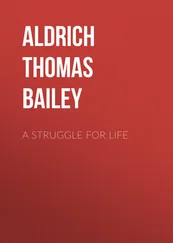Чарльз Дарвин - The Origin of Species by Means of Natural Selection Or, the Preservation of Favoured Races in the Struggle for Life
Здесь есть возможность читать онлайн «Чарльз Дарвин - The Origin of Species by Means of Natural Selection Or, the Preservation of Favoured Races in the Struggle for Life» весь текст электронной книги совершенно бесплатно (целиком полную версию без сокращений). В некоторых случаях можно слушать аудио, скачать через торрент в формате fb2 и присутствует краткое содержание. Год выпуска: 1999, Жанр: Биология, на английском языке. Описание произведения, (предисловие) а так же отзывы посетителей доступны на портале библиотеки ЛибКат.
- Название:The Origin of Species by Means of Natural Selection Or, the Preservation of Favoured Races in the Struggle for Life
- Автор:
- Жанр:
- Год:1999
- ISBN:нет данных
- Рейтинг книги:3 / 5. Голосов: 1
-
Избранное:Добавить в избранное
- Отзывы:
-
Ваша оценка:
- 60
- 1
- 2
- 3
- 4
- 5
The Origin of Species by Means of Natural Selection Or, the Preservation of Favoured Races in the Struggle for Life: краткое содержание, описание и аннотация
Предлагаем к чтению аннотацию, описание, краткое содержание или предисловие (зависит от того, что написал сам автор книги «The Origin of Species by Means of Natural Selection Or, the Preservation of Favoured Races in the Struggle for Life»). Если вы не нашли необходимую информацию о книге — напишите в комментариях, мы постараемся отыскать её.
The Origin of Species by Means of Natural Selection Or, the Preservation of Favoured Races in the Struggle for Life — читать онлайн бесплатно полную книгу (весь текст) целиком
Ниже представлен текст книги, разбитый по страницам. Система сохранения места последней прочитанной страницы, позволяет с удобством читать онлайн бесплатно книгу «The Origin of Species by Means of Natural Selection Or, the Preservation of Favoured Races in the Struggle for Life», без необходимости каждый раз заново искать на чём Вы остановились. Поставьте закладку, и сможете в любой момент перейти на страницу, на которой закончили чтение.
Интервал:
Закладка:
Although the belief that an organ so perfect as the eye could have been formed by natural selection, is enough to stagger any one; yet in the case of any organ, if we know of a long series of gradations in complexity, each good for its possessor, then under changing conditions of life, there is no logical impossibility in the acquirement of any conceivable degree of perfection through natural selection. In the cases in which we know of no intermediate or transitional states, we should be extremely cautious in concluding that none can have existed, for the metamorphoses of many organs show what wonderful changes in function are at least possible. For instance, a swim-bladder has apparently been converted into an air-breathing lung. The same organ having performed simultaneously very different functions, and then having been in part or in whole specialised for one function; and two distinct organs having performed at the same time the same function, the one having been perfected whilst aided by the other, must often have largely facilitated transitions.
We have seen that in two beings widely remote from each other in the natural scale, organs serving for the same purpose and in external appearance closely similar may have been separately and independently formed; but when such organs are closely examined, essential differences in their structure can almost always be detected; and this naturally follows from the principle of natural selection. On the other hand, the common rule throughout nature is infinite diversity of structure for gaining the same end; and this again naturally follows from the same great principle.
In many cases we are far too ignorant to be enabled to assert that a part or organ is so unimportant for the welfare of a species, that modifications in its structure could not have been slowly accumulated by means of natural selection. In many other cases, modifications are probably the direct result of the laws of variation or of growth, independently of any good having been thus gained. But even such structures have often, as we may feel assured, been subsequently taken advantage of, and still further modified, for the good of species under new conditions of life. We may, also, believe that a part formerly of high importance has frequently been retained (as the tail of an aquatic animal by its terrestrial descendants), though it has become of such small importance that it could not, in its present state, have been acquired by means of natural selection.
Natural selection can produce nothing in one species for the exclusive good or injury of another; though it may well produce parts, organs, and excretions highly useful or even indispensable, or highly injurious to another species, but in all cases at the same time useful to the possessor. In each well-stocked country natural selection acts through the competition of the inhabitants and consequently leads to success in the battle for life, only in accordance with the standard of that particular country. Hence the inhabitants of one country, generally the smaller one, often yield to the inhabitants of another and generally the larger country. For in the larger country there will have existed more individuals, and more diversified forms, and the competition will have been severer, and thus the standard of perfection will have been rendered higher. Natural selection will not necessarily lead to absolute perfection; nor, as far as we can judge by our limited faculties, can absolute perfection be everywhere predicated.
On the theory of natural selection we can clearly understand the full meaning of that old canon in natural history, "Natura non facit saltum." This canon, if we look to the present inhabitants alone of the world, is not strictly correct; but if we include all those of past times, whether known or unknown, it must on this theory be strictly true.
It is generally acknowledged that all organic beings have been formed on two great laws—Unity of Type, and the Conditions of Existence. By unity of type is meant that fundamental agreement in structure which we see in organic beings of the same class, and which is quite independent of their habits of life. On my theory, unity of type is explained by unity of descent. The expression of conditions of existence, so often insisted on by the illustrious Cuvier, is fully embraced by the principle of natural selection. For natural selection acts by either now adapting the varying parts of each being to its organic and inorganic conditions of life; or by having adapted them during past periods of time: the adaptations being aided in many cases by the increased use or disuse of parts, being affected by the direct action of external conditions of life, and subjected in all cases to the several laws of growth and variation. Hence, in fact, the law of the Conditions of Existence is the higher law; as it includes, through the inheritance of former variations and adaptations, that of Unity of Type.
CHAPTER VII.
MISCELLANEOUS OBJECTIONS TO THE THEORY OF NATURAL SELECTION.
Longevity—Modifications not necessarily simultaneous—Modifications apparently of no direct service—Progressive development—Characters of small functional importance, the most constant—Supposed incompetence of natural selection to account for the incipient stages of useful structures—Causes which interfere with the acquisition through natural selection of useful structures—Gradations of structure with changed functions—Widely different organs in members of the same class, developed from one and the same source—Reasons for disbelieving in great and abrupt modifications.
I will devote this chapter to the consideration of various miscellaneous objections which have been advanced against my views, as some of the previous discussions may thus be made clearer; but it would be useless to discuss all of them, as many have been made by writers who have not taken the trouble to understand the subject. Thus a distinguished German naturalist has asserted that the weakest part of my theory is, that I consider all organic beings as imperfect: what I have really said is, that all are not as perfect as they might have been in relation to their conditions; and this is shown to be the case by so many native forms in many quarters of the world having yielded their places to intruding foreigners. Nor can organic beings, even if they were at any one time perfectly adapted to their conditions of life, have remained so, when their conditions changed, unless they themselves likewise changed; and no one will dispute that the physical conditions of each country, as well as the number and kinds of its inhabitants, have undergone many mutations.
A critic has lately insisted, with some parade of mathematical accuracy, that longevity is a great advantage to all species, so that he who believes in natural selection "must arrange his genealogical tree" in such a manner that all the descendants have longer lives than their progenitors! Cannot our critics conceive that a biennial plant or one of the lower animals might range into a cold climate and perish there every winter; and yet, owing to advantages gained through natural selection, survive from year to year by means of its seeds or ova? Mr. E. Ray Lankester has recently discussed this subject, and he concludes, as far as its extreme complexity allows him to form a judgment, that longevity is generally related to the standard of each species in the scale of organisation, as well as to the amount of expenditure in reproduction and in general activity. And these conditions have, it is probable, been largely determined through natural selection.
It has been argued that, as none of the animals and plants of Egypt, of which we know anything, have changed during the last three or four thousand years, so probably have none in any part of the world. But, as Mr. G.H. Lewes has remarked, this line of argument proves too much, for the ancient domestic races figured on the Egyptian monuments, or embalmed, are closely similar or even identical with those now living; yet all naturalists admit that such races have been produced through the modification of their original types. The many animals which have remained unchanged since the commencement of the glacial period, would have been an incomparably stronger case, for these have been exposed to great changes of climate and have migrated over great distances; whereas, in Egypt, during the last several thousand years, the conditions of life, as far as we know, have remained absolutely uniform. The fact of little or no modification having been effected since the glacial period, would have been of some avail against those who believe in an innate and necessary law of development, but is powerless against the doctrine of natural selection or the survival of the fittest, which implies that when variations or individual differences of a beneficial nature happen to arise, these will be preserved; but this will be effected only under certain favourable circumstances.
Читать дальшеИнтервал:
Закладка:
Похожие книги на «The Origin of Species by Means of Natural Selection Or, the Preservation of Favoured Races in the Struggle for Life»
Представляем Вашему вниманию похожие книги на «The Origin of Species by Means of Natural Selection Or, the Preservation of Favoured Races in the Struggle for Life» списком для выбора. Мы отобрали схожую по названию и смыслу литературу в надежде предоставить читателям больше вариантов отыскать новые, интересные, ещё непрочитанные произведения.
Обсуждение, отзывы о книге «The Origin of Species by Means of Natural Selection Or, the Preservation of Favoured Races in the Struggle for Life» и просто собственные мнения читателей. Оставьте ваши комментарии, напишите, что Вы думаете о произведении, его смысле или главных героях. Укажите что конкретно понравилось, а что нет, и почему Вы так считаете.












